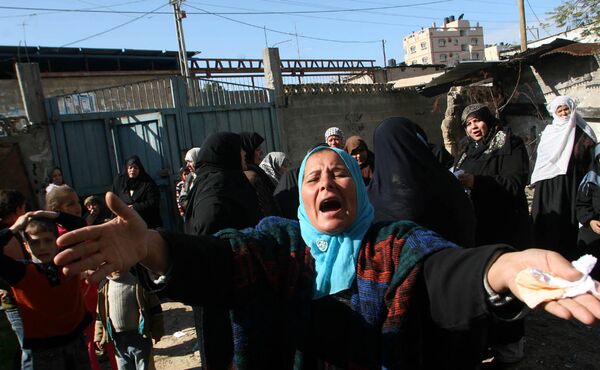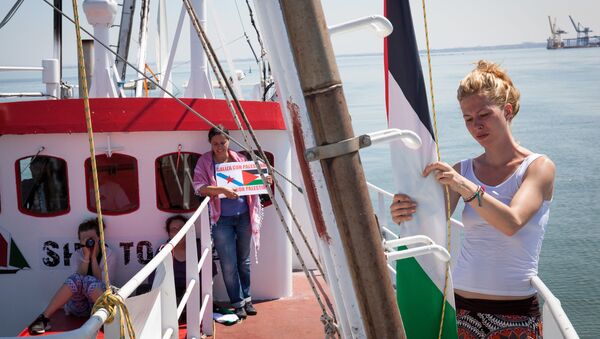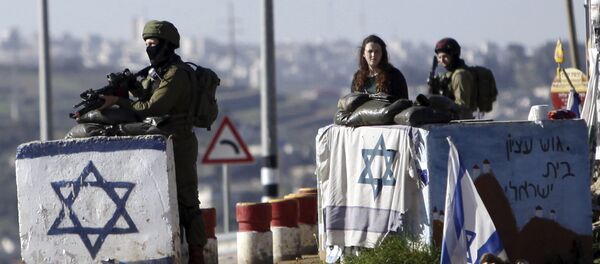The two boats are called "Amal" (Hope in Arabic) and "Zaytuna" (Olive), and are crewed by women from 15 different countries. One of the crew, Jaldia Abubakra, told Sputnik Mundo that the activists want to draw attention to the blockade of the Gaza Strip.
"I hope that we will wake up the conscience of humanity, and draw attention to this criminal blockade of Gaza, which has lasted for nearly ten years," said Abubakra, who was born in the city of Beersheba in southern Israel and now lives in Madrid.
Zohar Chamberlain, coordinator of the Women's Boat to Gaza committee, told Sputnik that the crew intends to travel all the way to Gaza, in spite of the blockade.
"We believe that there are no just impediments to our visit to Gaza, so there is no reason for us to end our journey in countries that we don't want to go to (Israel and Egypt)," Chamberlain said.

The Gaza Strip, with a total area of 365 square kilometers, has a total population of more than 1.76 million people, including 1.24 million Palestinian refugees.
Since the early 1990s, Israel has imposed movement restrictions on the Gaza Strip, and intensified them after the Hamas movement took control of the territory in 2007.
Hamas, an Islamist political and militant group, seeks the creation of an independent state of Palestine and wants Israel to withdraw from the Palestinian territories. Hamas also governs the Gaza Strip independently of the Palestinian Authority.
Palestinians in Gaza are trapped inside the territory by a system of physical barriers, checkpoints and bureaucratic restraints which constrains the flow of people and goods between the Gaza Strip and the outside world.
Egypt also restricts movement at its Rafah border crossing with Gaza, following a series of terrorist attacks in the Sinai Peninsula in October 2014 that killed dozens of Egyptian security personnel. Egypt accused Palestinians of involvement in the terror attacks, and the Rafah check point currently only opens for a few days every few months.




